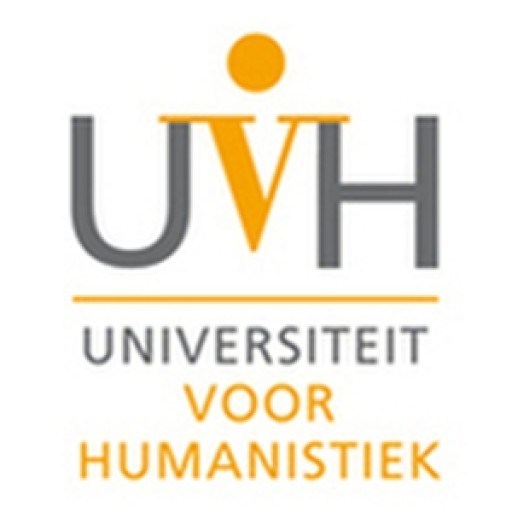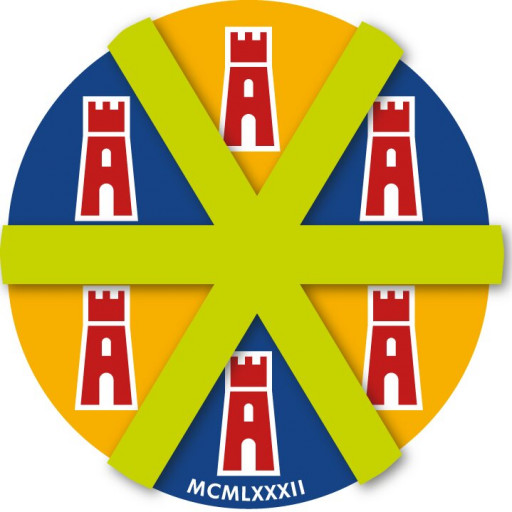"Humanistic Studies at the University for Humanistic Studies offers a comprehensive academic program designed to cultivate critical thinking, ethical awareness, and a deep understanding of human-centric issues across diverse contexts. This bachelor's degree program provides students with a solid foundation in philosophy, cultural studies, ethics, and the social sciences, enabling them to analyze complex human phenomena from multiple perspectives. Throughout the curriculum, students engage with foundational texts and contemporary debates, developing their analytical skills and ethical sensitivities. The program emphasizes an interdisciplinary approach, encouraging students to integrate insights from history, literature, politics, and other fields to address pressing societal challenges. Practical components, including workshops, projects, and internships, prepare students for careers in education, research, cultural institutions, and NGOs. The university's focus on small-scale, interactive teaching fosters a close-knit academic community where individual inquiry and dialogue are highly valued. Graduates emerge as thoughtfully equipped professionals capable of contributing meaningfully to society by applying humanistic principles to real-world issues. The program also offers opportunities for international exchange and research collaborations, enriching students' global perspectives. Overall, Humanistic Studies at the University for Humanistic Studies aims to nurture reflective, compassionate, and socially responsible individuals committed to advancing humanistic values in various professional and personal contexts."
The Bachelor's Degree in Humanistic Studies at the University for Humanistic Studies offers a comprehensive and interdisciplinary education designed to deepen understanding of human culture, society, and individual development. This program explores diverse aspects of human life through philosophical, cultural, social, and ethical perspectives, preparing students to engage thoughtfully with complex societal issues. The curriculum emphasizes critical thinking, analytical skills, and reflective practices, encouraging students to examine their own beliefs and assumptions in dialogue with a variety of intellectual traditions. Throughout the program, students engage with a wide range of subjects such as philosophy, history, arts, literature, and social sciences, providing a broad foundation for understanding the multifaceted nature of human existence. The program promotes active learning through seminars, workshops, individual research projects, and collaborative assignments, fostering a dynamic academic community. Students are encouraged to develop strong communication skills and innovative approaches to address contemporary challenges in fields such as education, cultural management, social work, and public policy. Additionally, the program emphasizes personal development and ethical awareness, preparing graduates to contribute meaningfully to society as reflective and responsible citizens. The curriculum also offers opportunities for practice-based learning and internship placements, linking academic insights with real-world applications. By the end of the program, students are equipped with a profound understanding of humanistic debates and a set of versatile skills that enable them to pursue advanced studies or careers in various sectors dedicated to social well-being, education, cultural affairs, and human rights. The Bachelor's Degree in Humanistic Studies at the University for Humanistic Studies aims to cultivate thoughtful, culturally aware, and socially responsible individuals who are capable of critical analysis and constructive engagement with the world around them.
Other requirements
- minimum kennis (ISPAC: overige vereisten) Voor alle diploma's die toelating geven tot de opleiding geldt als aanvullende toelatingseis beheersing van de Engelse taal op het niveau van het Nederlands VWO-examen.
The financing of the Humanistic Studies program at the University for Humanistic Studies is primarily based on a combination of government funding, tuition fees, and additional grants or scholarships. As a publicly funded Dutch university, the University for Humanistic Studies relies significantly on government subsidies allocated by the Dutch Ministry of Education, Culture and Science. These funds help support the development and maintenance of academic programs, faculty salaries, research activities, and student services. Tuition fees for Dutch and EU students are set annually and are designed to be accessible, ensuring that a diverse range of students can enroll in the program. Non-EU international students may pay higher tuition fees, which contribute directly to the financial stability of the university.
Students also have the opportunity to apply for various scholarships and financial aid programs aimed at supporting students with limited financial means. The university encourages students to seek external scholarships, grants, and work opportunities to help finance their studies. The university emphasizes transparent and affordable fee structures to reduce financial barriers and promote inclusion. Additionally, the university maintains partnerships with cultural and educational organizations that sometimes provide supplementary funding or project-based financing, which can support specific courses, research projects, or international exchanges within the Humanistic Studies program.
Fundraising activities and donations also play a role in financing the university’s broader educational mission, including scholarships and infrastructure development. The university’s emphasis on interdisciplinary and socially relevant education attracts funding from various stakeholders interested in fostering humanistic knowledge and critical thinking. Overall, the financial model of the Humanistic Studies program at the University for Humanistic Studies is designed to ensure long-term sustainability, accessibility for a wide range of students, and the continued development of high-quality educational offerings.
The Bachelor's degree programme in Humanistic Studies at the University for Humanistic Studies offers students a comprehensive education in understanding human culture, society, and individual identity through an interdisciplinary approach. The programme focuses on critical thinking, philosophical inquiry, cultural analysis, and ethical reasoning, preparing students to engage thoughtfully with complex societal issues. Throughout the course, students explore various disciplines such as philosophy, sociology, anthropology, history, and cultural studies, gaining a broad perspective on human experiences across different contexts and eras. The curriculum emphasizes the development of analytical skills, reflective thinking, and effective communication, both oral and written, enabling graduates to participate actively and responsibly in public debates, policymaking, and community engagement. Practical experiences, including internships, workshops, and research projects, are integrated into the programme to foster real-world skills and professional development. The programme also encourages international perspectives, offering opportunities for study abroad and collaborations with global institutions. Graduation from the programme equips students with the intellectual tools and ethical awareness necessary for careers in education, cultural institutions, non-profit organizations, social research, and counselling, among others. It also provides a solid foundation for those seeking further academic studies in humanistic and social sciences. The University for Humanistic Studies is known for its small class sizes and personalized approach, ensuring close interaction between students and faculty, and promoting a reflective learning environment. Overall, the programme aims to cultivate critical, culturally sensitive, and socially responsible individuals who can contribute thoughtfully to contemporary societal challenges.










